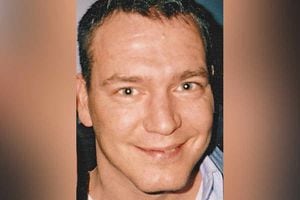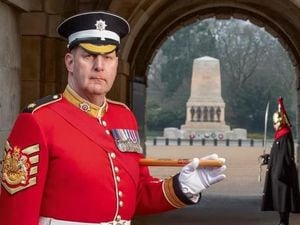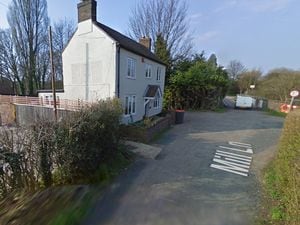NHS bosses apologise to parents over Shrewsbury man's suicide
The parents of a mentally ill Shrewsbury man who killed himself after being discharged from a psychiatric hospital have received an unreserved apology from NHS bosses.

Officials said lessons will now be learned following the death of Craig Sanders, 44, of Radbrook Hall Court, who was hit by a train at Shrewsbury Railway Station on September 4, 2015.
Shortly before his death, he was a psychiatric inpatient at the town's Redwoods Centre but had been discharged after doctors decided he was not a suicide risk.
Mr Sanders had repeatedly told doctors he did not feel safe at home and that he needed support for his condition.
Immediately after his discharge he self harmed and was taken to the Royal Shrewsbury Hospital for treatment and a blood transfusion.
He had sufficiently recovered by September 4 and was discharged from hospital, but it was noted that he needed input and support from the community mental health team over the weekend.
In a statement released by South Staffordshire and Shropshire Healthcare NHS Foundation Trust, associate director of communications Martin Evans said: "Our thoughts are always with the family in such tragic circumstances.
"We accepted the coroner's findings and offered an unreserved apology; our clinical team could have done better to support Craig.
"Mr and Mrs Sanders were involved with the trust's investigating officer during our own serious incident review and we have taken action on a number of issues they raised; for example we have considerably improved the liaison and interface with the acute hospital wards and our mental health teams, via the RAID (Rapid Assessment Interface and Discharge Service)."
At an inquest into his death before John Ellery, coroner for Shropshire, Telford & Wrekin, the arrangements surrounding Mr Sanders' discharge were criticised and the South Staffordshire and Shropshire Healthcare NHS Foundation Trust, admitted that he should have been better supported by the community mental health team.
The coroner found that this was particularly the case given his fears about returning home, that it was a Friday night and he knew that his care co-ordinator was only available until 5pm.
His care had gone back to the original plan but this was not specific to his recent crises which had led to him being admitted to the Redwoods Centre and later to the Royal Shrewsbury Hospital.
After being informed of his discharge, Mr Sanders went to the railway station where he made his way on to the tracks before being hit by a train.
Lawyers from Lanyon Bowdler Solicitors acted on behalf of Mr Sanders' parents, Vivienne and Philip Sanders, to pursue a claim of clinical negligence against the Trust, which was settled out of court.
Mrs Sanders said she and her husband tried desperately to help their son in the days leading up to his death.
She said: "We live in South Wales so our main way of contacting Craig was by phone, and because he had asked medical staff not to tell us anything we were effectively cut off.
"We appreciate that the staff at Redwoods couldn't tell us anything Craig didn't want us to know, but they didn't listen to our concerns that might have helped them treat and understand Craig better.
"In their internal investigation they later concluded that more could have been done to obtain information from us and from other people who knew Craig such as MIND, where he volunteered regularly."
Mr and Mrs Sanders said the lack of communication from the South Staffordshire and Shropshire Healthcare NHS Foundation Trust following Craig's death was a major reason why they instigated legal action.
"If the NHS was more open and would talk to families about what had gone wrong there wouldn't be the need for legal cases like this, but we feel we were left with no option but to start legal action when we weren't even given answers and explanations to our questions," said Mrs Sanders.
"The focus of the legal case for us was investigating why Craig was left on his own when he so desperately needed professional help and establishing whether there had been failures in the trusts' procedure."
Miranda Bailey, of Lanyon Bowdler's clinical negligence team, said: "Firstly, the case shows that improvements are needed to the quality and availability of community mental health care available in the UK.
"There are too many news stories at the moment about failings in mental health care and time and again families are saying that they are not listened to.
"Secondly, Mr and Mrs Sanders did not feel involved in the investigations into Craig's death and wanted answers.
"Had full and frank answers been given initially, the legal fees involved on both sides in this case could have been saved.
"Finally, at the inquest into Craig's death, Mr and Mrs Sanders had legal representation from a barrister.
"This enabled questions to be asked which were relevant to the claim and which took the pressure off them of having to deal with hospital staff witnesses."





